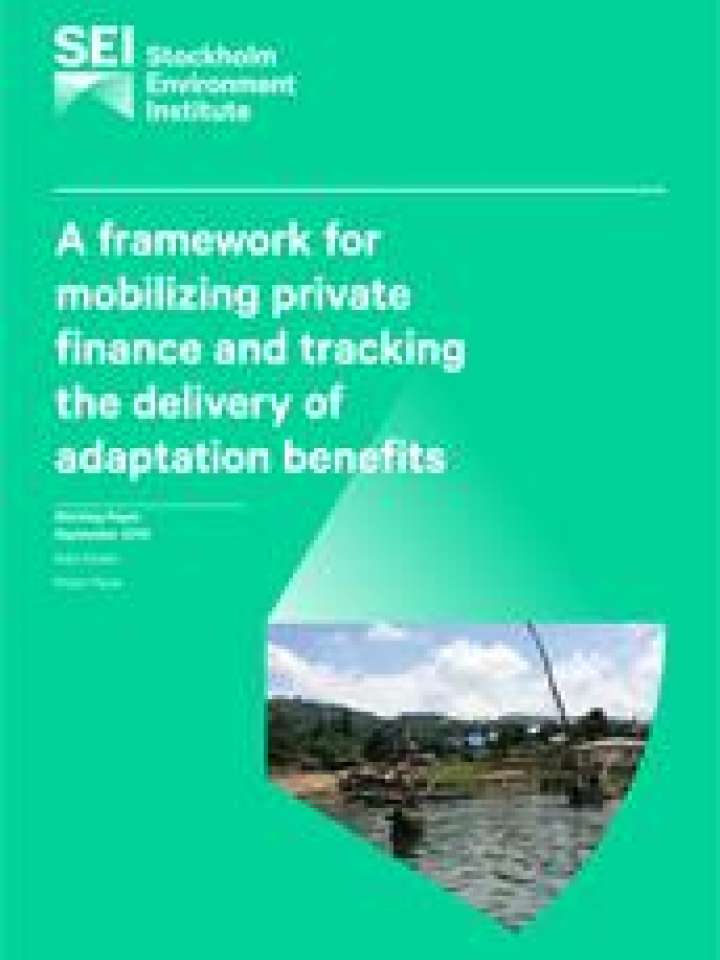A framework for mobilizing private finance and tracking the delivery of adaptation benefits
Over the last decade, there has been the growing expectation from the international community that the private sector will become an important source of finance for climate change adaptation in developing countries. However, this potential still remains unclear. While it is expected that some private actors will purposefully or unconsciously invest in reducing their own vulnerability, it is far less obvious how the public sector can mobilize private investments in adaptation that deliver benefits to the broader community. This paper presents an empirically-driven, conceptual framework that allows users to create an overview of enabling environments, mobilization, and delivery of finance for adaptation benefits at the national level. The framework was tested in two countries in Sub-Saharan Africa: Kenya and Rwanda. While an enabling environment is an important first step for mobilization of private finance, as often argued in literature, it is also crucial to enforce existing policies and consistently install and apply safeguard mechanisms, as well as to create awareness of climate impacts among private sector actors. Otherwise, the high expectations around the private sector’s financing of adaptation will not be met, which would leave communities, businesses and countries vulnerable to climate change.
Explore further

